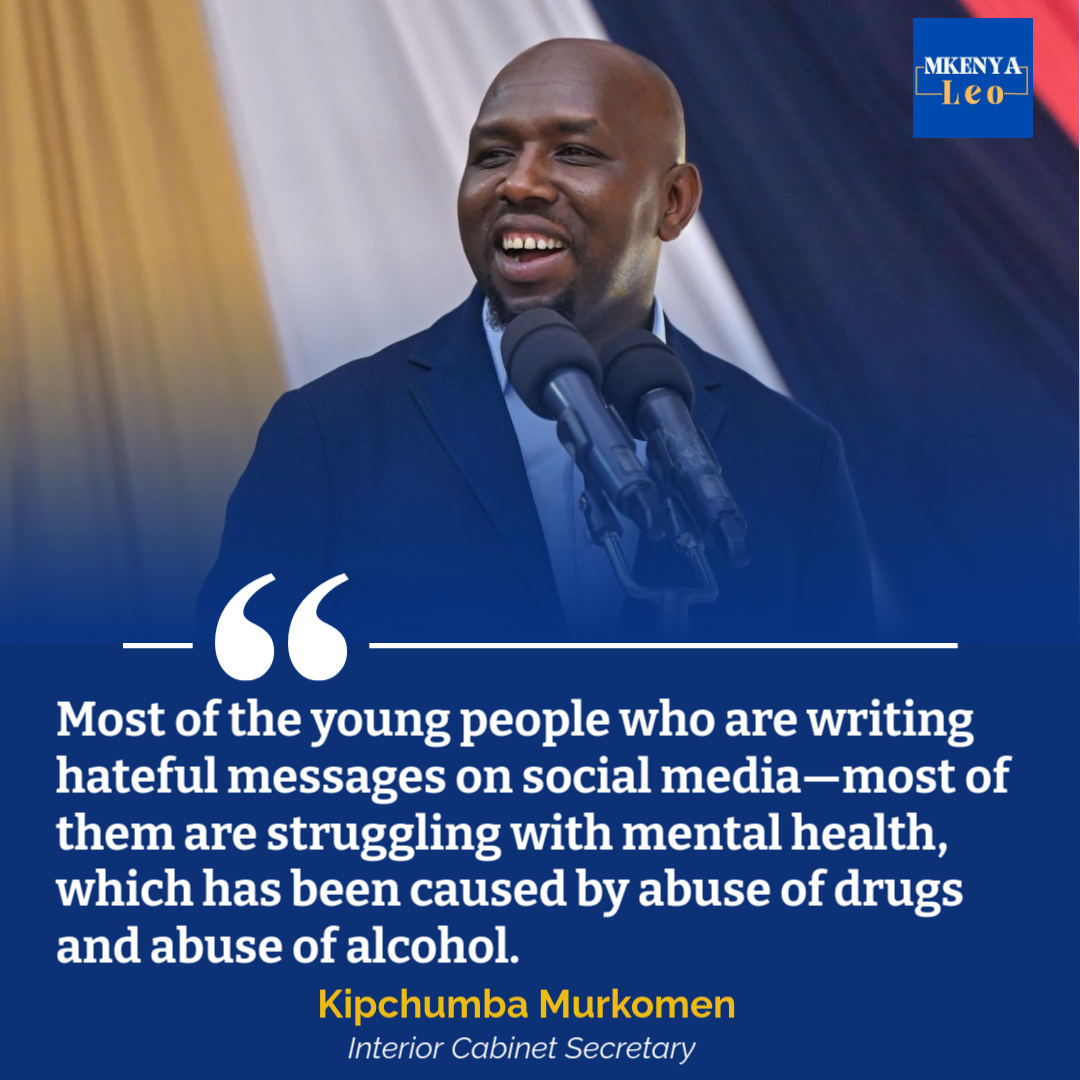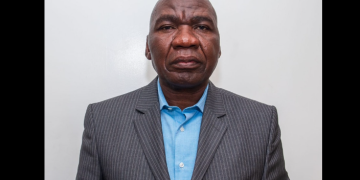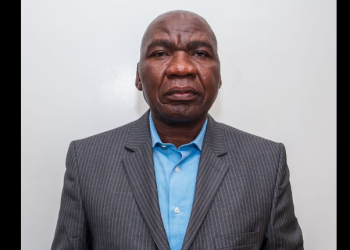In a digital world where social media plays a significant role in shaping conversations, Interior Cabinet Secretary Kipchumba Murkomen has raised an alarming concern: Are young people turning to online hate speech as a cry for help?
Speaking during a church service in Makutano, Meru, on Sunday, March 30, 2025, Murkomen linked the rise in hateful social media posts to deeper mental health struggles, often fueled by substance abuse.
“Most of the young people who are writing hateful messages on social media—most of them are struggling with mental health, which has been caused by abuse of drugs and alcohol,” he noted.
Murkomen’s remarks open up a broader conversation on whether cyberbullying is, in some cases, a symptom of deeper personal struggles. The internet has become an outlet for many young people facing loneliness, depression, and addiction.

In some instances, their aggression online is not just about attacking others—it’s a reflection of their own inner pain.
“Sometimes, as an adult, you might search for someone who has insulted you on social media only to discover it’s a severely troubled young person, locked away in their house, using their phone to insult others because they’re looking for attention,” he added.
This paints a concerning picture: Are young people lashing out online as a desperate attempt to be seen? Could what seems like online toxicity be a silent cry for help?
Murkomen’s remarks challenge communities to rethink their approach to addressing cyberbullying. Instead of viewing all cases as simple misbehavior, there is a need to investigate the underlying causes—mental health struggles, addiction, or emotional neglect.
He further called on the public to actively fight substance abuse, which he believes is a major contributor to these struggles.
“I want to urge you: if there’s a woman selling illegal alcohol or a businessman promoting substance abuse in your area, don’t stay silent. Report it to the authorities. Speak to your chiefs,” he urged.
While cyberbullying is a real problem that needs to be addressed, Murkomen’s perspective highlights the importance of offering support to those behind the screen. Rather than reacting with hostility, could society take a more compassionate approach—focusing on mental health awareness, rehabilitation, and social support?
The conversation is just beginning. Should we rethink how we respond to hateful online behavior? Is there more that can be done to support troubled youth before they resort to online attacks?











































